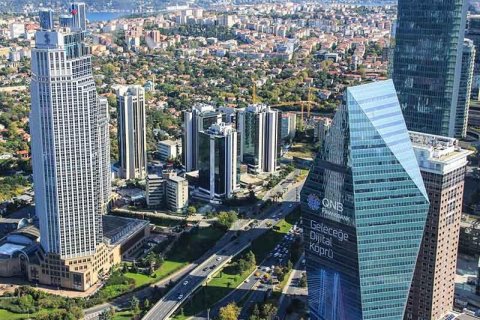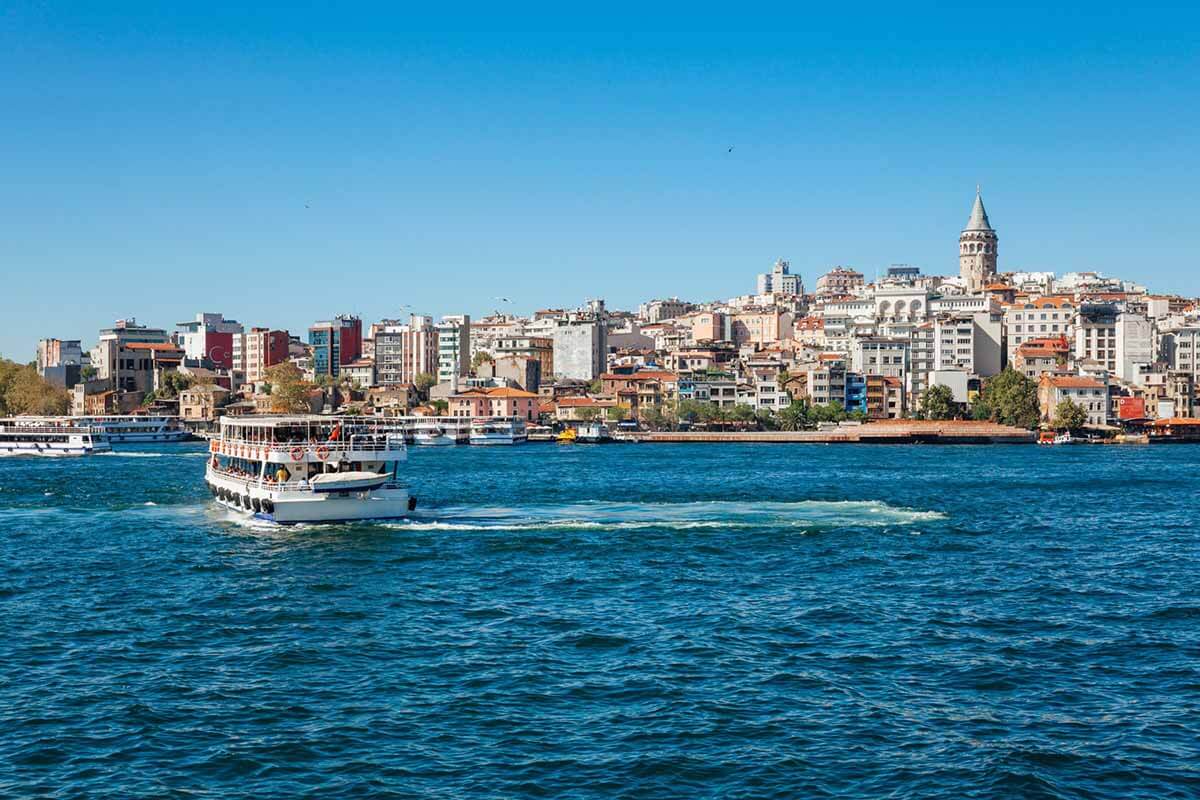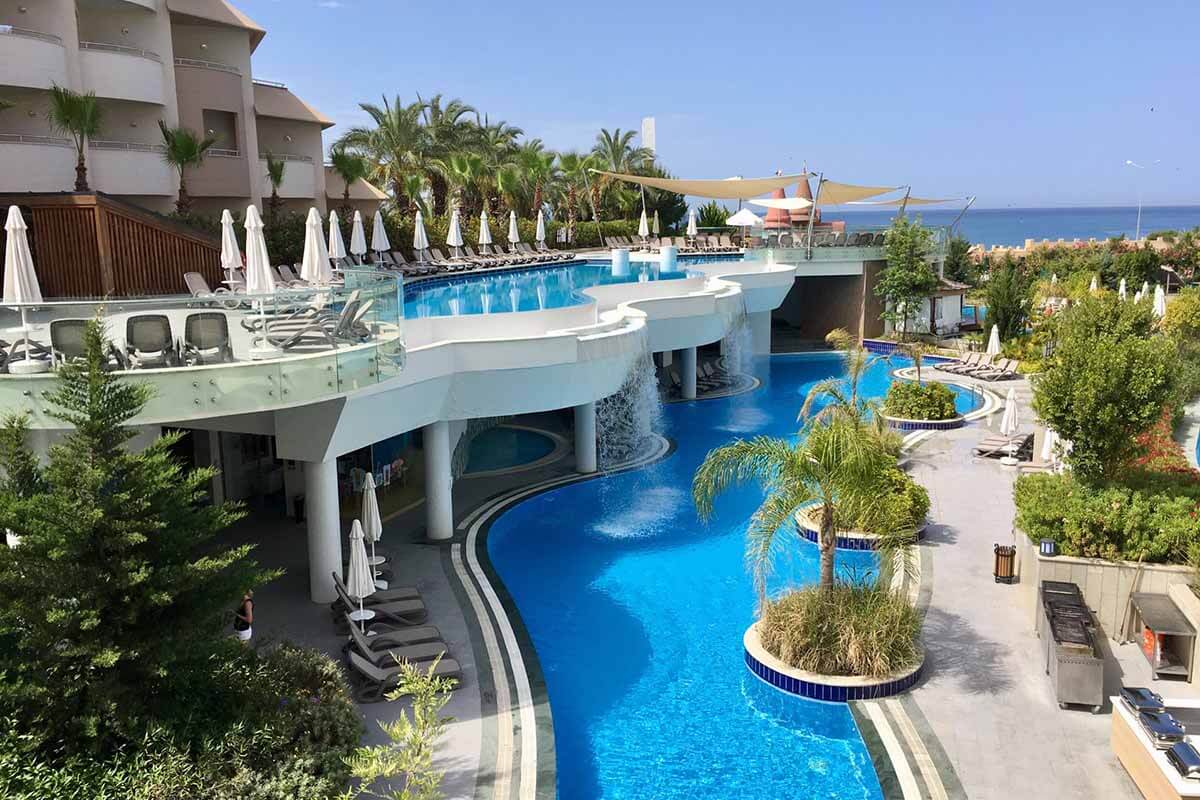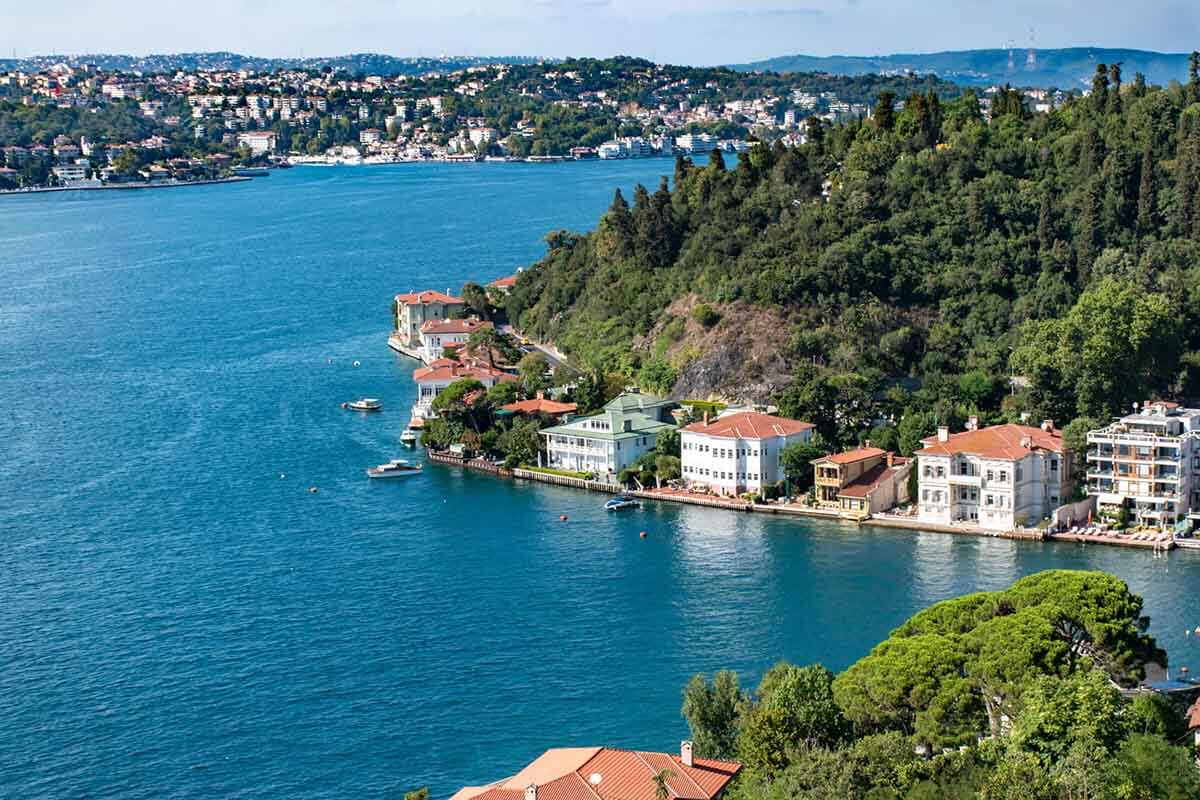
A world leader in the real estate consulting services market recently published a report called the «Analysis of the Turkish market at the end of 2021». So, what’s been happening in recent months in the office, retail, industrial, logistics, residential, hotel, and student living sectors?
Let’s look at some details.
In the second and third quarters of last year, upward trends were seen with growth of 21.7% in the third quarter. But, annual inflation in December was fixed at 36.08% and this is just an indicator because it’s expected to reach its peak in 2022. There’s some news about the real estate industry’s growth. Data for the end of the year is positive. 2021 was very successful – there were more than 3,000,000 real estate transactions and an absolute record was broken in non-residential real estate sales.
CONTENTS:
- Logistics
- Industrial sector
- Shopping malls
- Offices
- Hotels
- Dormitories
- Residential real estate: sales close to records
- Are foreigners to blame for the rise in housing prices?
- Turkey will become one of TOP-5 countries in real estate sales in 2025
Logistics
The logistics sector is picking up. Warehouse rentals grew by 12% in the last quarter of the year compared to the previous year. Because of the increased demand for up-to-standard warehouses but a limited supply, there was a big rent increase - up to 16% compared to the first half of 2021. Companies are now interested in much larger areas as they hope to increase the square footage of warehouses for future projects.

Industrial sector
The demand for factories and other industrial premises is also growing. Global car giants Ford and Volkswagen announced that they’ll produce their new commercial vehicles in Kocaeli in 2021.
Shopping malls
Several shopping centers postponed due to the pandemic were now opened in the last quarter of the previous year. Despite the new virus and increased cases worldwide, this hasn’t affected in-person retail (affecting customers) as much as was expected. For example, in November 2021, the index of the number of visitors to shopping centers decreased by 6.25% compared to October but there was also an increase of 38.9% compared to October 2020.
E-commerce shares dropped to 15.2%. A big increase in the number of visitors after restrictions were lifted was positive for turnovers. The turnover index for shopping centers increased by 60.7% in October 2021 compared to the previous year. November saw an increase of 80.22%. So, shopping centers are already reaching pre-pandemic 2019 indicators.
In the second half of last year, despite the negative pressure created by inflation and exchange rate fluctuations, 282,000 square meters of new space (6 shopping malls) were built. The total commissioning of shopping centers in 2021 was 324,644 square meters. This is 5% more than 2020.
Offices
By the end of 2021, the total supply of offices in the Istanbul market remained at 6,460,000 square meters. And, in the last quarter of the year, there was deferred demand where actual transactions were twice as much as the third quarter. Companies that spent the first 6 months mainly working «remotely» returned to in-person or hybrid working for the rest of the year.
Because of this, 32% more space was rented in October-December than in the same period a year earlier. Another important indicator is that 90% of leases in the fourth quarter were new.
The highest rent was recorded in the Levent district of Istanbul.
Hotels
This year, more tourists came to Turkey than in the first «pandemic» of 2020. The tourism sector has improved markedly after travel restrictions were lifted increased have been vaccinations. But «pre-pandemic» indicators have not yet recovered.
Despite this, the occupancy rate of hotels in Turkey in 2021 increased by 45% compared to 2020 and amounted to 52%. In Istanbul, this was even slightly higher at 55%. The average cost of a room (per day) was 82 and 91 euro in Turkey and Istanbul.
In total, 30,970,000 foreign tourists visited Turkey in 2021. This is 88.08% more than the previous year despite the continuing effects of the pandemic. 9,000,000 of them visited Istanbul (also 80.5% more than in the previous year). And the tourist flow continues to grow so several companies have announced hotels in Turkey will be opening soon. International hotel operators specifically are reopening with Accor in the forefront. The Turkish NG Hotels chain announced plans to open a residence hotel on the Aegean coast as soon as possible and there’ll be at least two accommodation areas at the New Istanbul Airport.

Dormitories
The number of students has increased to 8,240,000 despite there being 4% fewer dormitories in the country. Considering recently commissioned ones, there are now 5,179, and the total capacity of all dormitories has decreased by 3%. This is 1,140,000 beds. It turns out that there are 6-7 students per space. The demand for student accommodation has peaked especially in Istanbul.
Because of this and full-time studies resuming, students who returned to their hometowns during the pandemic faced many problems due to the lack of dormitories and apartments for rent.
Foreign investors naturally continue to be interested in all parts of the real estate market except perhaps dormitories. You can find profitable options for property everywhere but residential real estate is still a priority.
Residential real estate: sales close to records
Home sales in Turkey decreased by 0.5% compared to 2020 but the second-largest record of transactions over the past 10 years was set. This amounted to 1,490,000 and is a record in Europe. This still stands despite interest rate increases on housing loans and mortgage transactions less than a year earlier decreased by 48.6%.
There were large injections into the country's economy by foreign investors. Transactions with foreigners increased by 43.5% compared to the previous year and reached almost 60,000 (58,576) – 8,500 transactions more than the target originally planned for the year. Most residential real estate was sold in Istanbul. Residents of Iran (10,056 transactions, or more than one-sixth of the total), Iraq (8,661), the Russian Federation (5,379, or slightly less than 10%), Afghanistan (2,762) and Germany (2,358) purchased the most apartments and houses. One noteworthy indicator is a 115% increase in housing investments in Turkey by US citizens. The President of the Association for the Promotion of Turkish Real Estate Abroad GIGDER Omer Faruk Akbal, based on the year’s results, publicly noted this. Considering that the number of transactions with foreign investors reached a record figure of 58,500, expecting more growth in this sector is understandable. There’s also an obvious trend of rising «selling» and rental housing rates.
Are foreigners to blame for the rise in housing prices?
But, according to Mr. Akbal, fears that sales to foreigners will «inflate» the price of housing in the lower and middle price segments (which is fraught for the economy) are groundless because investors from abroad aren’t really interested in these apartments. «According to GIGDEKS, the index of housing sales for foreigners, which we published with AGS Global, the average price of real estate purchased by foreigners in Turkey in the last quarter of 2021 was USD187,000. This is equivalent to 2,500,000 Turkish lira (TL). For residents, the cost of purchased real estate, as a rule, does not exceed TL500,000. Similarly, foreigners do not affect this process because of an almost five-fold difference in price.
So, residential real estate purchased by foreigners can only increase the cost of luxury real estate like branded residences, etc.»
Fears expressed last year that foreigners are to blame for the rise in rental prices are unfounded. TUIK's recently published data on the current construction cost index shows that it increased by 48.87% in November 2021 compared to the same month of the previous year. Taking into account soaring prices for building materials, increased costs for workers' salaries, etc., the cost of construction has risen sharply. And real estate has also become more expensive. Omer Faruk Akbal recalled that when the supply of free housing on the market does not increase and new projects are being handed over slowly, this is inevitable.
Mr. Akbal said that the high increase in rent is associated with an increase in the number of arrivals of foreigners to Turkey. «GIGDER research on this issue shows that 50% of real estate sold to investors from abroad immediately enters the rental market. In other words, when residents of other countries come to Turkey, they buy 90% of branded housing, pay an average of TL 2,500,000 TL and at least 50%. So, 50 out of every 100 residential properties on the market are offered for rent. This means that foreigners influence how the apartment market is made and not the growth of the rent».
Omer Faruk Akbal stressed that real estate is the largest supplier of direct investments. In developed countries like the USA or the UK, 60% of direct investments are in real estate. This is one of the most important economic drivers since it’s transformed into jobs, new factories, factories, offices, etc.

Turkey will become one of TOP-5 countries in real estate sales in 2025
Stressing that more than USD400,000,000,000 is invested in real estate annually in the world and that Turkey is on the verge of becoming a new international investment hub of selling residential real estate, the President of the Association notes that Turkey is already in TOP-10 countries on the planet for this. «Our country has entered 2022 with a new economic model where exports correspond to imports and tend to create foreign exchange reserves through tourism and direct investment. Due to the dedication of our development industry and the incentives offered by the public, we expect to achieve a foreign currency income of USD20,000,000,000. We also strive to enter the TOP-5 list of leading countries in real estate sales to foreigners by 2025, as we have already entered TOP-10. Our biggest competitor right now is the USA, followed by the UK, Canada and Spain».
In 2022, housing sales to foreigners are expected to be at least 70,000 units. The share of transactions with foreigners was 3.9% compared to 2% a few years earlier and it continues to steadily increase.
In December 2021, a record increase in transactions was recorded: +77.1% by December 2020 (7841 units). And, this is the highest indicator for the month for the entire period.
Turk.Estate has already written that foreign investors are mostly interested in high-end branded residences. Considering the favorable exchange rate of dollars or euro to lira, many of them are getting housing with an area almost twice as large as before.
Also, the number of interested parties is increasing every day because of the fast procedure to obtain Turkish citizenship when buying property for USD 250,000 or more.
The innovation of September 2021 of an independent assessment of property cooled the interest of buyers a little. This is partly why the average price of housing sold to foreigners has decreased from USD 196,037 to USD 187,091. Nevertheless, GIGDER expects to reverse this process and bring the average check in terms of housing sold to foreigners almost to the USD 250,000 threshold. Fortunately, foreign investors have money and Turkey is an attractive country for residence and renting out real estate.








